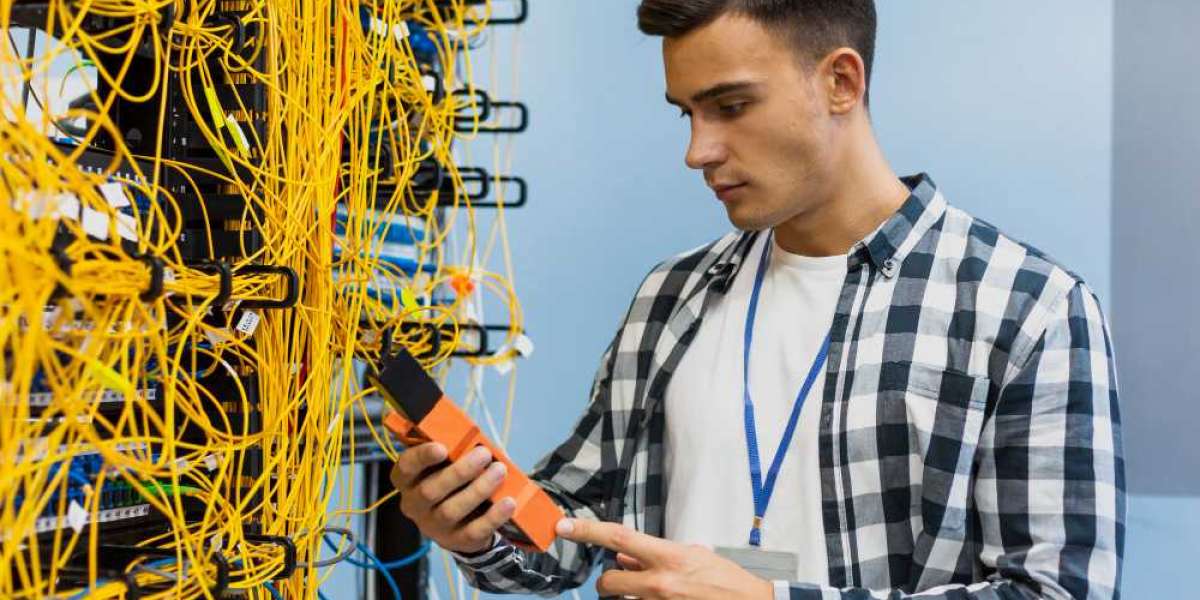Cable internet is one of the most common and dependable ways to stay connected, as it offers a good balance of speed and availability.
With so many options to choose from, it can be hard to figure out which is the best internet cable service for you. You might wonder what factors you need to consider, and what makes one cable service better than another. Let’s walk through the basics of cable internet services and some key points to keep in mind when choosing the best internet cable service for your needs.
What is Cable Internet?
Cable internet uses the same coaxial cable lines that deliver cable TV. This technology is widely available in urban and suburban areas, providing high-speed internet that’s much faster than older DSL connections and often more stable than satellite. Cable internet works by sending data through these coaxial cables, allowing for fast downloads and uploads, even when multiple devices are connected.
The beauty of cable internet lies in its reliability and speed. It's faster than many other types of connections, especially in households where multiple users are streaming, gaming, or doing other bandwidth-heavy activities simultaneously.
Factors to Consider When Choosing the Best Internet Cable Service
To choose the best internet cable service, you should consider several key factors that will influence your experience. These include:
1. Internet Speed
One of the most important factors in choosing a cable internet service is the speed. Speeds can range anywhere from 25 Mbps (megabits per second) to over 1,000 Mbps (1 Gbps) in some areas. The speed you need depends on your internet usage habits:
- Basic Use (Browsing, Emails, Light Streaming): If you only use the internet for basic browsing, checking emails, and occasional video streaming, you may not need the fastest speeds available. A plan with speeds between 25 to 100 Mbps will likely suffice.
- Streaming and Gaming: For those who stream high-definition videos, or play games online, you’ll need higher speeds to avoid buffering and lag. A plan with speeds between 100 to 300 Mbps is usually recommended for smooth performance.
- Multiple Devices or Heavy Users: In households where multiple people are streaming, gaming, or working online at the same time, it’s a good idea to opt for even higher speeds. Plans offering speeds of 500 Mbps or more can ensure smooth service even during peak usage times.
When thinking about speed, remember that download speed (how fast you can pull data from the internet) and upload speed (how fast you can send data to the internet) both matter, especially if you're uploading large files or using video conferencing regularly.
2. Pricing
Pricing varies significantly depending on the provider and the region. It’s important to compare the costs of different plans, but don’t just go for the cheapest option. Sometimes a low-cost plan may not provide the speeds you need, or it might come with hidden fees, such as installation or equipment rental charges.
Look for plans that balance cost with value. Some companies offer promotional pricing for the first year, so it’s important to read the fine print to understand how much your service will cost after the promotional period ends. Additionally, be sure to check if there are data caps or overage charges that could affect your monthly bill if you exceed a certain amount of data usage.
3. Customer Service
When it comes to the best internet cable service, customer support is an often overlooked but important factor. A company might offer fast speeds at a reasonable price, but if their customer service is lacking, it can make dealing with issues a nightmare.
Look for reviews of customer service experiences, focusing on things like response times, helpfulness, and how easily problems get resolved. Whether it's troubleshooting a connection issue or handling billing questions, having a reliable customer support team can make your experience much smoother.
4. Availability
One of the most important considerations when choosing a cable internet service is availability. Not all providers serve every region, so your options might be limited depending on where you live. While urban and suburban areas often have multiple providers to choose from, rural areas may only have one or two options, or sometimes none at all when it comes to cable internet.
It’s essential to check which providers are available in your area and compare the plans they offer. Even if a provider is available nationwide, the speeds and packages they offer can vary by location.
5. Equipment and Installation
Most cable internet services require a modem and router to provide you with internet access. Many companies offer these for rent, but if you plan to keep your service long-term, it might be worth investing in your own equipment. This can save you money over time and give you more control over the quality of your connection.
In terms of installation, some companies offer free self-installation kits, while others may charge for professional installation. If you’re not tech-savvy, having a professional set up your service may be the best option, but be sure to factor in any extra costs.
6. Contract Terms
Some internet service providers (ISPs) require long-term contracts, often for one or two years. While these contracts can sometimes lock in lower prices, they also come with penalties if you need to cancel early. If you’re unsure about committing to a long-term plan, look for providers that offer month-to-month options.
Keep in mind that promotional pricing may only be available with a contract, so weigh the benefits of a lower initial price against the flexibility of no contract.
Understanding Data Caps and Throttling
When choosing the best internet cable service, you should also be aware of data caps and throttling. Some providers place limits on how much data you can use each month, and if you go over that limit, they may either charge you extra or slow down your connection speeds—a practice known as throttling.
If you’re someone who uses a lot of data (for example, streaming high-definition video, downloading large files, or gaming online), you’ll want to find a plan with no data caps or at least a high limit to avoid these issues.
Benefits of Cable Internet
Now that we’ve covered what to look for when choosing the best internet cable service, let’s take a closer look at why cable internet is a popular choice.
- Speed – Cable internet offers much faster speeds than older technologies like DSL. It’s suitable for households with multiple users and can handle activities like streaming, gaming, and video conferencing with ease.
- Availability – Cable internet is widely available in most urban and suburban areas. It’s more commonly available than fiber in many places, making it accessible to more people.
- Reliability – Compared to satellite and DSL, cable internet tends to be more reliable, as it’s less affected by weather conditions or distance from the service provider.
- Bundling Options – Many cable providers also offer TV and phone services. Bundling your internet with other services can sometimes save you money and make it easier to manage your bills.
Choosing the best internet cable service doesn’t have to be overwhelming. By considering factors like speed, pricing, customer service, and availability, you can find the right plan that meets your needs and budget. Whether you’re a casual browser or a heavy user with multiple devices, cable internet can offer a stable and fast connection to keep you online without frustration.



